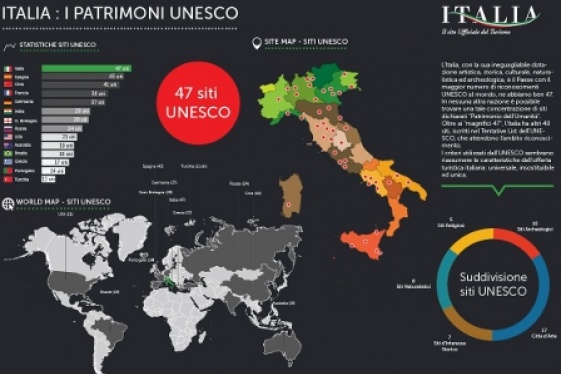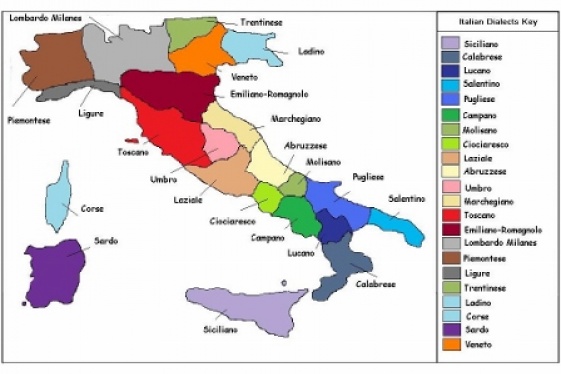

WTI Magazine #70 2015 October, 16
Author : Elda Buonanno Foley Translation by:
I have been thinking of writing about this theme for quite some time and I have always postponed it: reason being that this is one of those Italian stereotypes that, even if it has changed in the past few decades, it still seems to be very much alive in the Italian community. There is no doubt that when thinking of the typical Italian men, foreigners tend to brand "them" as elegant, charming, a bit macho but very closely linked with their mothers.
And thus, let me provide a short and quick reply: yes, the last point is very true, but before going into the details let me provide some background to the general concept of the Italian family and the specific role of each member in it.
The Italian family, as a predominant group in the bigger Italian community, has radically changed in the past 30 years: we have passed from the school of thought of our grandparents, according to which the family nucleus was holy and unbreakable, to a typology of family in which 37.9 % of the current couple marries only after a long period of living together in order to "test" the union before making it "official" through marriage.
Thus, today we see staggering numbers of separations and divorces compared to our ancestors' time and the not too distant 80s or 90s. Just in 2012, for 1000 married couples, there were 182 divorces and 311 legal separations. This instability due to so many variables (too many to discuss here – age, religion, culture, job, ease of Worldwide communication and travel and so forth), has inevitably affected the number of children per family: we have passed from 3-4 children per family in the 40s and 50s to 1-2 per family in the recent years. Only in 2014 there were 5000 babies less than the previous year.
All these data (not meaning to keep procrastinating the discussion), however, do not affect what is the typology of a family that is recurrent in Italy: our standard nature or model could be easily defined as "nurturing", maybe a bit "overly controlling", and what is known as an "emergency room type" - we nurture our kids, pamper them, intervene in their lives and plan their path so that when they grow older, they struggle to "abandon" their comfortable status.
In recent years and according to current data, among 2500 young people between 25-29, almost half of them (about 57.3 %) decide to stay longer with their parents and in this very half, the percentage of men is higher than women (67.4% versus 45.9 %). Here is a clear indication of why, when we think of the term "mammoni", we do, most of the time, think of the men of Italy.
So why do they tend to stay longer within the family nucleus? Could it be because the maternal nature of our family tends to be even more evident with the boys than with the girls? Is it because our mothers seem to keep protecting, "serving" their men as if they were the "prince" of the family? Yes, but the answer has more shades to it. I am not defending a typology of the Italian adult man who might not be able to cook, iron or simply handle daily routines but his job unless his mother/wife intervenes and takes over: I am asserting that our daily society often does not allow an adult man to "survive" outside the family environment, at least at the beginning of his "mature and working life". When dealing with universities, for example, we do not have a lot of campuses in Italy, so the typical student resides with the parents and commutes to the chosen school.
And later, when he gets a job, due to the standard low ( at least at the start) wages, the preferred choice, or ( as some would say) the most convenient option, is to stay with his own family. Here is a more "realistic" answer but even in this case, most of our international friends will not "buy" it.
In sum, in Italy there are mammoni, there have always been and there will always be: we love our maternal focused care and we struggle to "abandon" it and trade it for our independence. That the Italian men should be more "modern" and be able to do anything in the house and outside (making meals, iron their monogrammed shirts, wipe the floor and so forth) is a reality for some but it is still late in coming for a bigger majority. Viva la Mamma!!!
You may be interested
-
The Italian Way Addressing the Italian Stereo...
WTI Magazine #72 2015 November 13Author : Elda Buonanno Foley Translation by:...
-
The Italian Way Addressing the Italian Stereo...
WTI Magazine #73 2015 November 27Author : Elda Buonanno Foley Translation by:...
-
The Italian Way: Addressing the Italian Itali...
WTI Magazine #78 2016 April 15Author : Elda Buonanno Foley Translation by: ...
-
The Italian way: Addressing the Italian Stere...
WTI Magazine #61 2015 May, 29Author : Elda Buonanno Foley Translation by: W...
-
The Italian Way: Addressing the Italian Stere...
WTI Magazine #64 2015 July, 10Author : Elda Buonanno Foley Translation by: ...
-
The Italian way: Addressing the Italian Stere...
WTI Magazine #59 2015 May, 1Author : Elda Buonanno Foley Translation by: If...
-
The Italian Way: Addressing the Italian Stere...
WTI Magazine #68 2015 September, 18Author : Elda Buonanno Foley Translation by:...
-
The Italian Way: Addressing the Italian Stere...
WTI Magazine #69 2015 October, 2Author : Elda Buonanno Foley Translation by: ...










